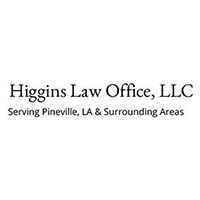Tioga Juvenile Law Lawyer, Louisiana
Sponsored Law Firm
-
 x
x

Click For More Info:
-
Babcock Trial Lawyers
10101 Siegen Ln #3-C Baton Rouge, LA 70810» view mapCriminal Defense We Want Your Injury Claim PAID NOW!
At Babcock Trial Lawyers, we work for our clients, maintaining our reputation of excellence as criminal defense & personal injury lawyers in Baton Rouge.
225-500-5000
Not enough matches for Tioga Juvenile Law lawyer.
Below are all Tioga Criminal lawyers.
George Higgins
✓ VERIFIEDCriminal, Accident & Injury
George Lewis Higgins III received his Juris Doctor degree in 1979 from Paul M. Hebert Law Center at Louisiana State University in Baton Rouge. Mr. Hig... (more)
Thomas Rockwell Willson
Criminal, Elder Law, Credit & Debt, Personal Injury
Status: In Good Standing Licensed: 46 Years
Carolyn O'neal Hines
Trusts, Family Law, Criminal, Car Accident
Status: In Good Standing Licensed: 13 Years
Edward L Tarpley
Child Custody, Criminal, Accident & Injury
Status: In Good Standing Licensed: 44 Years
Charles G Gravel
Criminal, Personal Injury, Accident & Injury
Status: In Good Standing Licensed: 41 Years
Richard V Burnes
Federal Trial Practice, Criminal, Civil & Human Rights, Personal Injury
Status: In Good Standing Licensed: 62 Years
Eric James Talley
Other, Estate, Divorce & Family Law, Criminal
Status: In Good Standing Licensed: 9 Years
 Stephen Babcock Baton Rouge, LA
Stephen Babcock Baton Rouge, LA Practice AreasExpertise
Practice AreasExpertise

